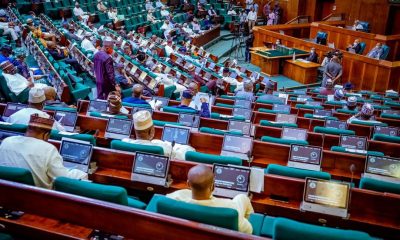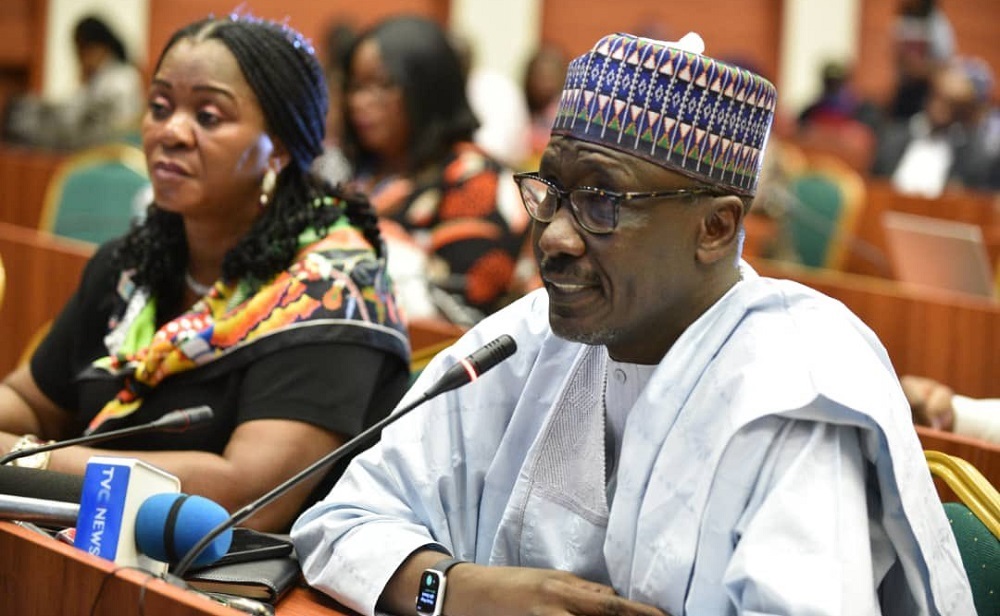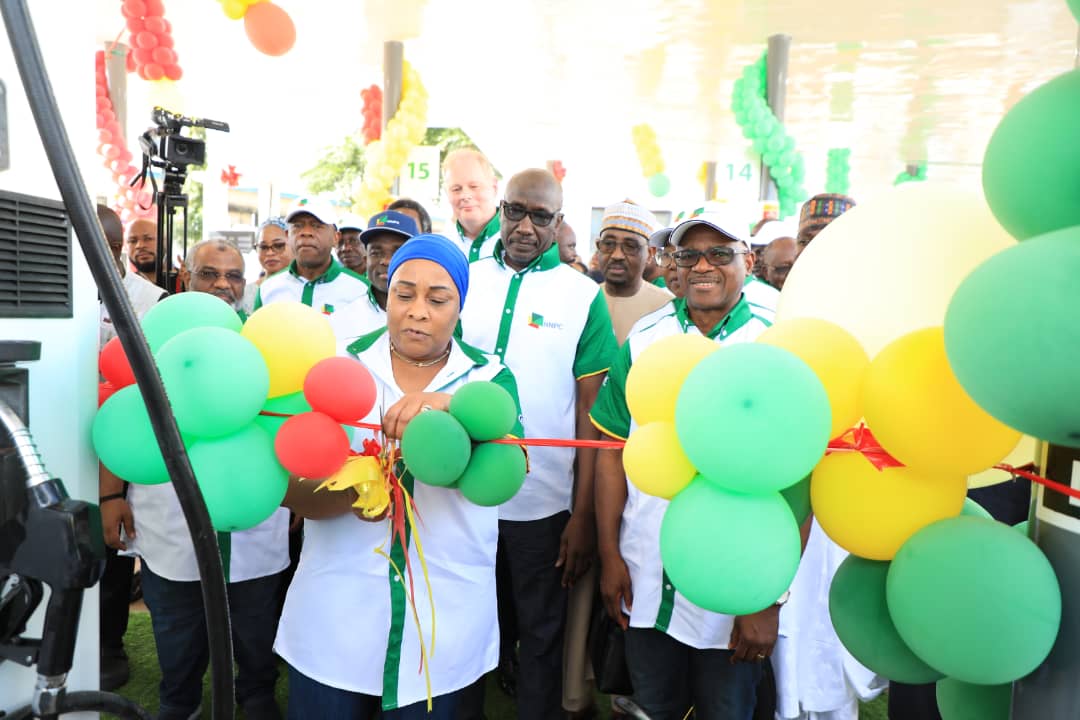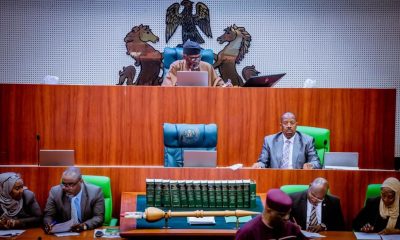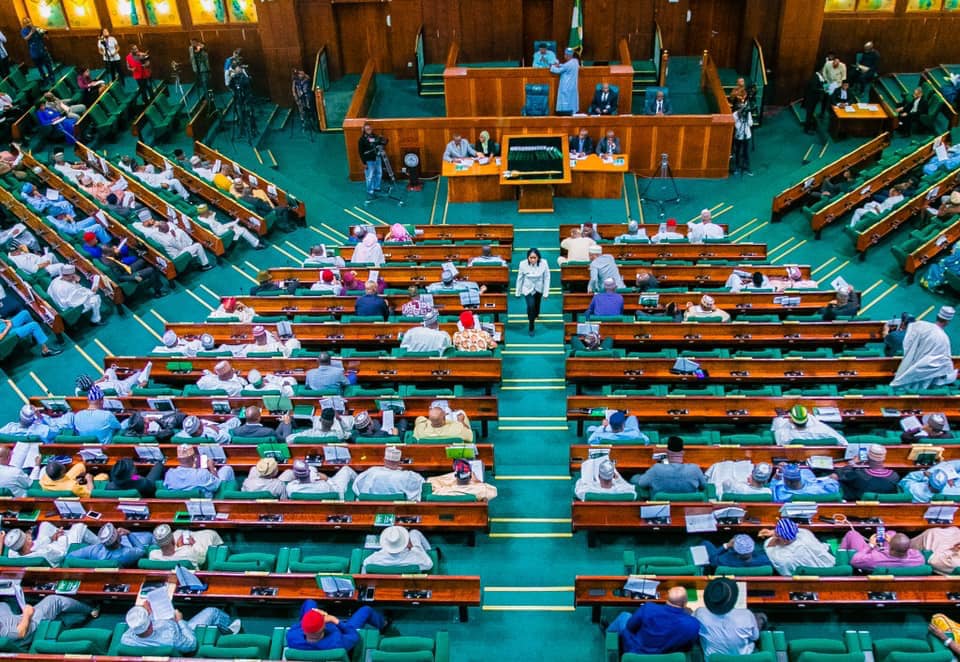Economy
Reps to Probe FG Over MTN N2.6trn Tax Evasion Claims
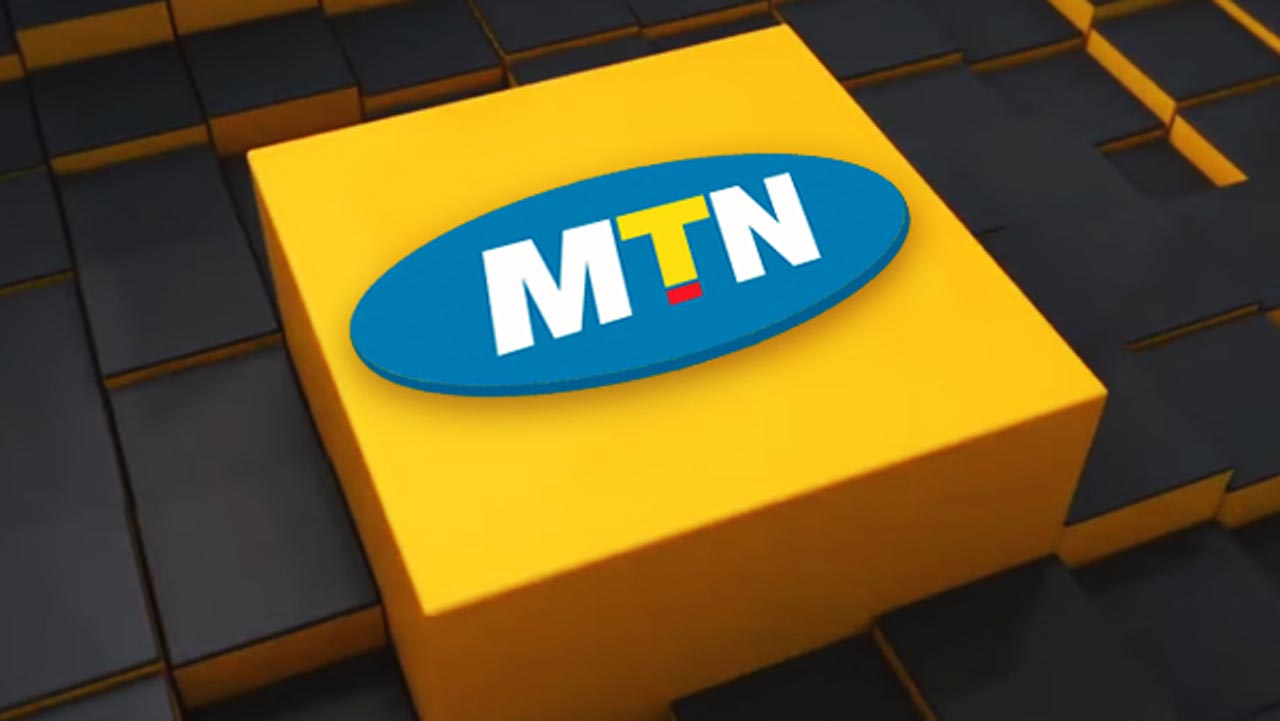
By Adedapo Adesanya
The House of Representatives has said it would probe further claims of the N2.6 trillion capital allowances granted to MTN by the federal government through the Ministry of Trade and Industry.
This was disclosed by the Chairman of the House Committee on Public Accounts, Mr Oluwole Oke, at the resumed investigative hearing into the audit queries on tax evasion issued by the office of the Auditor-General for the Federation (oAuGF) on Tuesday.
He disclosed that the oAuGF report indicated that the documents relating to the N2.6 trillion capital allowances were allegedly forged.
While stressing that the committee invited MTN over tax evasion, Mr Oke explained that the oAuGF, in its report, observed that the Federal Inland Revenue Service (FIRS) accorded value to the telecoms company while in some cases without certificates and evidence of capital allowance issued by Federal Ministry of Trade and Industry, reflecting the whole assets procured by the company.
“We have issues in this country where funds are not adequate for government to carry out policies and programmes, which is why we had to borrow even though there are massive revenue leakages,” he said.
“MTN has also made appearances where N2.6 trillion was seen as the taxable value for assets of the company and we asked as to where they exist and who verified them because they had already claimed value for them with the FIRS,” he added.
The lawmaker maintained that Nigerians have the right to know the implications of MTN taking a certificate of N2.6 trillion to FIRS for tax waivers on the economy.
“The parliament simply wants to know whether it should sustain the query raised by the Auditor General or absolve the company of the allegations of tax evasion, as it would be wrong to accuse it of such if these records tally with the company’s submission,” he explained.
“The issue says that we should speak to facts and law. You’re here when we asked the Industry Ministry and they said both the local and foreign contents were the certificates they issued to you. However, the Auditor-General says such issuance appears to have been falsified which was the basis of its query to you,” the lawmaker further stated.
In her response, MTN’s General Manager, Mrs Yemisi Adeleye, explained that the company has submitted all relevant documents issued by the Federal Ministry of Trade and Industry reflecting the value of N2.6 trillion given to it.
While responding to questions on the 2016 inspection relating to the capital allowances granted to the company, Mrs Adebayo observed that the company made claims to the Federal Ministry of Trade and Industry at the end of the year prompting them to choose a location and inspect, as it was physically impossible for them to inspect thousands of assets across the country.
Hence, the Ministry, based on their selection using supporting documents granted the allowances.
She said what the company had in 2016 was the automated card record bearing Ins and Outs of the team leader, one Mr Ike.
When asked how many people were on the team with Ike who had the access card and inspected assets from March 29 to April 4, she said she couldn’t remember the identities of the Ministry officials as the team members were not captured individually in the record.
She said what they presented to the FIRS was what their security team gave to them.
When asked again if the Ministry wrote the company informing it of the inspection date and the list of team members or just by words of mouth, Mrs Adebayo said that the Ministry formally communicated to that effect.
Also asked how many assets they inspected within the five days, she said she could not recall.
She argued that the most expensive of the company’s infrastructure were warehoused in their switches located in Ojota in Lagos, Port Harcourt, among other places.
While giving details on the claims made by the company for capital allowance, she disclosed that the sum of N18,967,410,769 was claimed in 2016, adding that in 2017, a logbook was brought back, reading Abuja switch with Ike and three others as inspection team members.
According to her, a total of N148 billion capital allowance was granted to the company, while N210 billion was approved in 2018 after the visit to the Ojota switch, as well as N190,629,586,000 in 2019 following a visit to the Port Harcourt switch.
When asked if all the assets procured by the company in 2019 were all located at the Port Harcourt switch, she responded in the negative, adding that in 2020, the Ministry officials visited the Abuja switch, another team visited the Ojota switch, while another visited Port Harcourt and granted capital allowance worth N219,540,623,545.
When asked if she would agree to give out a value of N219 billion based on one inspection that visited just three locations out of over a thousand locations, she said the company only filed what was approved by the inspection team with the FIRS for consideration.
Mr Oke, in his remarks, reiterated the lawmakers’ resolve to ascertain the patriotic and professional involvement of the Ministry officials, saying that they cannot fold their arms and watch when people whose salaries and allowances were appropriated to do a job failed to carry out their duties under the law.
To this end, the committee resolved that all the officials involved in the inspection from the Federal Ministry of Trade and Industry should be made to appear before it.
It also requested the tax records covering the periods under review from both MTN and FIRS for further legislative scrutiny.
Economy
Nigeria’s Economy Expands 4.07% in Q4 2025

By Adedapo Adesanya
Nigeria’s economy, measured by gross domestic product (GDP), grew by 4.07 per cent (year-on-year) in real terms in the fourth quarter (Q4) of 2025.
The National Bureau of Statistics (NBS) announced the development in its latest GDP report for Q4 2025 on Friday.
The latest figure represents an improvement over the 3.76 per cent growth recorded in the corresponding period of 2024, signalling sustained recovery across key sectors of the economy. The growth rate was faster than the third quarter’s 3.98 per cent.
The report confirmed that Nigeria’s oil sector grew 6.79 per cent year-on-year and the non-oil part of the economy expanded by 3.99 per cent.
Nigeria’s average daily oil production stood at 1.58 million barrels per day in the final three months of 2025. That was lower than the third quarter’s output of 1.64 million barrels per day but higher than the 1.54 million barrels per day in the fourth quarter of 2024.
Breakdown of the data showed that the agriculture sector grew by 4.00 per cent in the fourth quarter of 2025. This marks a significant increase compared to the 2.54 per cent growth recorded in the same quarter of 2024, reflecting improved output and resilience in the sector.
The industry sector also recorded a stronger performance during the period under review. It grew by 3.88 per cent year-on-year, up from 2.49 per cent posted in the fourth quarter of 2024. The improvement suggests enhanced activity in manufacturing, construction, and related industrial sub-sectors.
The services sector maintained its position as a major growth driver, expanding by 4.15 per cent in Q4 2025. However, this was slightly lower than the 4.75 per cent growth recorded in the corresponding quarter of the previous year.
Overall, the 4.07 per cent GDP growth in the final quarter of 2025 underscores broad-based expansion across agriculture, industry, and services, despite a marginal moderation in services growth.
The Q4 performance provides further evidence of strengthening economic momentum, with improvements recorded in both agriculture and industry compared to the previous year.
Economy
Flour Mills Supports 2026 Paris International Agricultural Show

By Modupe Gbadeyanka
For the second time, Flour Mills of Nigeria Plc is sponsoring the Paris International Agricultural Show (PIAS) as part of its strategies to fortify its ties with France.
The 2026 PIAS kicked off on February 21 and will end on March 1, with about 607,503 visitors, nearly 4,000 animals, and over 1,000 exhibitors in attendance last year, and this year’s programme has already shown signs of being bigger and better.
The theme for this year’s event is Generations Solution. It is to foster knowledge transfer from younger generations and structure processes through which knowledge can be harnessed to drive technological advancement within the global agricultural sector.
In his address on the inaugural day of the Nigerian Pavilion on February 23, the Managing Director for FMN Agro and Director of Strategic Engagement/Stakeholder Relations, Mr Sadiq Usman, said, “At FMN, our mission is Feeding and Enriching Lives Every Day.
“This is a mandate we have fulfilled through decades of economic shifts, rooted in a culture of deep resilience and constant innovation. We support this pavilion because FMN recognises that the next frontier of global Agribusiness lies in high-level technical exchange.
“We thank the France-Nigeria Business Council (FNBC), the organisers of the PIAS, and our fellow members of the Nigerian Pavilion – Dangote, BUA, Zenith, Access, and our partners at Creativo El Matador and Soilless Farm Lab— we are exceedingly pleased to work to showcase the true face of Nigerian commerce.”
Speaking on the invaluable nature of the relationship between Nigeria and France, and the FMN’s commitment to process and product innovation, Mr John G. Coumantaros, stated, “The France – Nigeria relationship is a valuable partnership built on a shared value agenda that fosters remarkable Intercontinental trade growth.
“Also, as an organisation with over six decades of transformational footprint in Nigeria and progressively across the African Continent, FMN has been unwaveringly committed to product and process innovation.
“Therefore, our continuous partnership with France for the success of the Paris International Agricultural Show further buttresses the thriving relationship between both countries.”
PIAS is one of the most widely attended agricultural shows, with thousands of people from across the world in attendance.
Economy
NEITI Backs Tinubu’s Executive Order 9 on Oil Revenue Remittances

By Adedapo Adesanya
Despite reservations from some quarters, the Nigeria Extractive Industries Transparency Initiative (NEITI) has praised President Bola Tinubu’s Executive Order 9, which mandates direct remittances of all government revenues from tax oil, profit oil, profit gas, and royalty oil under Production Sharing Contracts, profit sharing, and risk service contracts straight to the Federation Account.
Issued on February 13, 2026, the order aims to safeguard oil and gas revenues, curb wasteful spending, and eliminate leakages by requiring operators to pay all entitlements directly into the federation account.
NEITI executive secretary, Musa Sarkin Adar, called it “a bold step in ongoing fiscal reforms to improve financial transparency, strengthen accountability, and mobilise resources for citizens’ development,” noting that the directive aligns with Section 162 of Nigeria’s Constitution.
He noted that for 20 years, NEITI has pushed for all government revenues to flow into the Federation Account transparently, calling the move a win.
For instance, in its 2017 report titled Unremitted Funds, Economic Recovery and Oil Sector Reform, NEITI revealed that over $20 billion in due remittances had not reached the government, fueling fiscal woes and prompting high-level reforms.
Mr Adar described the order as a key milestone in Nigeria’s EITI implementation and urged amendments to align it with these reforms.
He affirmed NEITI’s role in the Petroleum Industry Act (PIA) and pledged close collaboration with stakeholders, anti-corruption bodies, and partners to sustain transparent management of Nigeria’s mineral resources.
Meanwhile, others like the Petroleum and Natural Gas Senior Staff Association of Nigeria (PENGASSAN) have kicked against the order, saying it poses a serious threat to the stability of the oil and gas industry, calling it a “direct attack” on the PIA.
Speaking at the union’s National Executive Council (NEC) meeting in Abuja on Tuesday, PENGASSAN President, Mr Festus Osifo, said provisions of the order, particularly the directive to remit 30 per cent of profit oil from Production Sharing Contracts (PSCs) directly to the Federation Account, could destabilise operations at the Nigerian National Petroleum Company (NNPC) Limited.
Mr Osifo firmly dispelled rumours of imminent protests by the union, despite widespread claims that the controversial executive order threatens the livelihoods of 10,000 senior staff workers at NNPC.
He noted, however, that the union had begun engagements with government officials, including the Presidential Implementation Committee, and expressed optimism that common ground would be reached.
Mr Osifo, who also serves as President of the Trade Union Congress (TUC), expressed concerns that diverting the 30 per cent profit oil allocation to the Federation Account Allocation Committee (FAAC), without clearly defining how the statutory management fee would be refunded to NNPC, could affect the salaries of hundreds of PENGASSAN members.
-

 Feature/OPED6 years ago
Feature/OPED6 years agoDavos was Different this year
-
Travel/Tourism10 years ago
Lagos Seals Western Lodge Hotel In Ikorodu
-

 Showbiz3 years ago
Showbiz3 years agoEstranged Lover Releases Videos of Empress Njamah Bathing
-

 Banking8 years ago
Banking8 years agoSort Codes of GTBank Branches in Nigeria
-

 Economy3 years ago
Economy3 years agoSubsidy Removal: CNG at N130 Per Litre Cheaper Than Petrol—IPMAN
-

 Banking3 years ago
Banking3 years agoSort Codes of UBA Branches in Nigeria
-

 Banking3 years ago
Banking3 years agoFirst Bank Announces Planned Downtime
-

 Sports3 years ago
Sports3 years agoHighest Paid Nigerian Footballer – How Much Do Nigerian Footballers Earn


